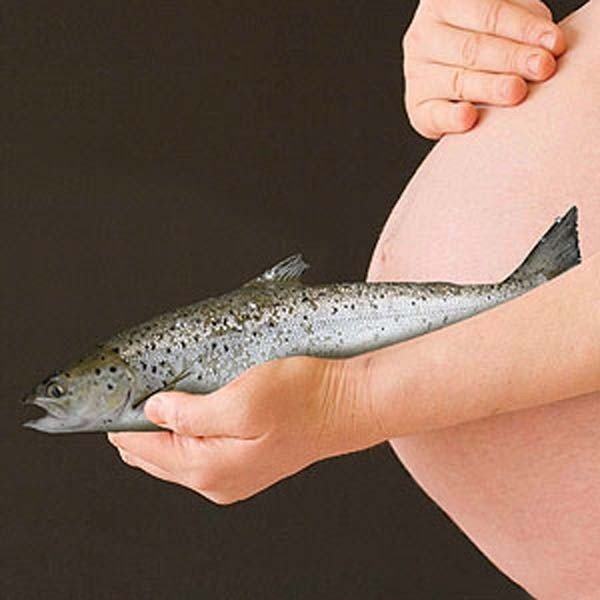What can you say about eating fish during pregnancy?Indeed, fish is an important source of polyunsaturated fatty acids, especially omega-3.
When passing through the placenta during pregnancy, these acids have beneficial effect on the development of the nervous system of the fetus and affect the growth of fat tissue.
While previous studies 151880 among pairs of mothers and children, it was found that those children whose mothers regularly ate fish had heavier birth weight, and among them was born less premature.
Fish consumption and contaminants
Pollutants disrupt hormonal development. Eating fish increases the risk of exposure to persistent organic pollutants, some of them associated with disorders of the endocrine system.
Scientists speculate that pollutants can disrupt signaling by certain receptors. This may affect the process of fat metabolism and contribute to the development of obesity.
However, it remains unclear what the exact number of fish you can eat mothers, and what types they should be avoided to protect the growth and development of their child.
Leda Chatzi, PhD University of Crete, along with staff conducted a large-scale study to establish a link between the consumption of fish by the mother and height and weight of the child. They analyzed the performance 26,184 pregnant women and their children from USA and Europe.
The average consumption of fish during pregnancy depended on the residence, from 0.5 times per week in Belgium and to 4, 45 times in Spain.
Mothers who consumed fish more than 3 times a week during pregnancy had children with higher body mass index in 2, 4 and 6 years, compared with children whose mothers ate less fish.
Frequent fish consumption was also associated with faster growth from birth to 2 years of age and higher rates of overweight or obesity in children 4 and 6 years. However, the authors warn that this relationship is not yet fully confirmed.
First, during the study did not take into account the fish species, its origin (river or sea), the ways of cooking.
Secondly, no information was available about the levels of persistent organic pollutants in various locations that, according to the authors, may explain the detected Association between higher fish consumption during pregnancy and increased childhood obesity.
Medical news reported last month that its use could contribute to the development of the fetal brain, thanks to polyunsaturated fatty acids omega-3.
Video how useful fish – school of health






